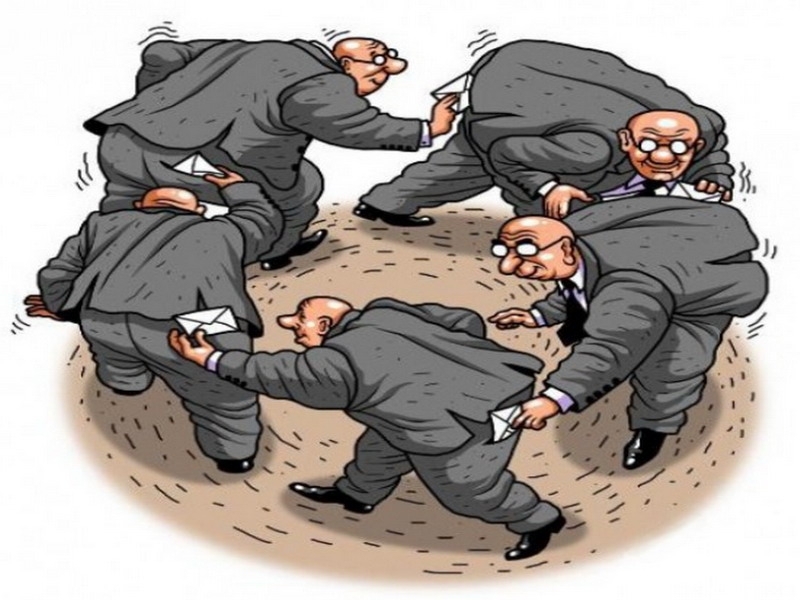Many Ukrainians in the regions fear that decentralization will allow oligarchic clans to take control in some places and that the passivity of Ukrainians will slow reforms, according to the overwhelming majority of analysts surveyed by Kyiv’s International Centre for Policy Studies.
The analysts also fear the consequences for the country of decentralization given the unprofessionalism and corruption of local bureaucrats and of the launch of this program without much real discussion at the local level, Denis Rafalsky reports on the Apostrophe portal.
In the judgment of the 56 analysts from throughout Ukraine, Rafalsky says, “the process of decentralization of Ukraine can be completed successfully but it will not occur without problems.” Two-thirds of the experts suggested that decentralization will occur at a moderate pace, while 10 percent said it would go quite quickly and 14 percent said it would only be “imitative.”
“The main factors which could slow reform,” the experts said, “are the passivity of the citizens and the impact of paternalistic attitudes in society.” Other obstacles include the approaching elections, the lack of professionalism and corruption of local officials, and “the unwillingness of the central authorities to give significant financial resources to the regions.”
Rafalsky suggests that “it is interesting that only 18 percent of the sample viewed military operations in the Donbas as a possible obstacle for decentralization, while 75 percent of the experts held the view that “fulfillment of the EU Association Agreement would have a favorable influence on the speed of decentralization.”
Although 91 percent of the experts believe that decentralization will eventually be carried out successfully, significant shares of them see risks ahead:
- 58 percent say that the reform may allow oligarchs to take control of some regions,
- 25 percent say that the reform will give the regions the opportunity to “blackmail” Kyiv.
According to Anatoliy Oktysyuk, a senior analyst at the International Centre for Policy Studies, the reforms have not been widely discussed in Ukraine’s regions. As a result, he says, while there is significant interest there in financial decentralization – meaning the regions get more money from Kyiv – there has been less concern about political decentralization.
But the two things are necessarily closely related, he says, noting that the experts surveyed fear that any money that goes to the regions without political reforms being in place will end up in the hands of local clans given that neither Kyiv nor the regions have effective control over such flows.








